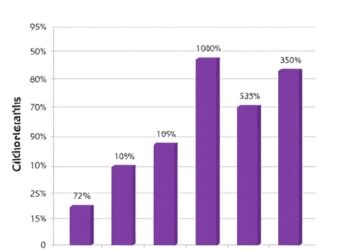Embargoed until 8:30 am Thursday, 11 April, 2024 Central European Summer Time (GMT +2)
Embargoed until 8:30 am Thursday, 11 April, 2024 Central European Summer Time (GMT +2)
11 April, 2024, Prague, Czech Republic—While debating the pros and cons of robotically assisted lung transplantation, Albert Jauregui, MD, PhD told attendees at the Annual Meeting and Scientific Sessions of the International Society for Heart and Lung Transplantation (ISHLT), today in Prague that the time for robotic surgery is now.
Although robots are commonly used to assist in surgery, robotically assisted surgery is not routinely used for lung transplants. Approximately 4,600 lung transplants are performed annually around the world.
“We’ve been doing robotically assisted, minimally invasive surgeries for lung cancer for the last several years,” said Dr. Jauregui, chief of the Thoracic Surgery and Lung Transplant Department, Vall d’Hebron University Hospital in Barcelona, Spain. “Lung cancer patients are already benefiting from robotic platforms to make their surgery less invasive, but patients who need a lung transplant are still being offered an aggressive surgery. For our team, it didn’t make any sense. We felt like things had to start changing.”
In February 2023, Dr. Jauregui’s team performed Spain’s first robotically assisted single-lung transplant; three months later they performed a second single-lung transplant. Both patients showed good improvement in the postoperative period and needed only mild medication for the pain caused by the surgery.
“We accomplished our main objective for this minimally invasive approach, which was to reduce the size of the surgical incision and the need for powerful pain drugs that interfere with wound healing,” said Dr. Jauregui. “We are happy with the outcome of the first lung transplant patients with robotic surgery, but we have to continue working to be able to offer this type of surgery to more patients.”
Dr. Jauregui’s team spent hours in the lab performing robotically assisted surgeries with synthetic lungs before moving to large animal models. By deflating the lung and relying on the skin’s flexibility, surgeons discovered they could use a smaller incision below the sternum to remove and insert the lungs.
“Lung transplants are a very tough procedure, from donor selection through the surgery to the postoperative period,” said Dr. Jauregui. “Unlike other organs that are all protected inside the body, the lungs are connected to the environment through breathing. It’s one of the most difficult organs to transplant.”
After the two successful robotically assisted lung transplants, Dr. Jauregui’s team began working with a medical device company to develop design robotic instruments specifically for lung transplantation.
“Our next goal is to perform a bilateral lung transplant,” he said. “We plan to perform five robotically assisted procedures this year and 10 next year.”
Another objective for Dr. Jauregui’s department is to disseminate the new technique to more lung transplant programs.
“We believe that reducing surgical aggression is better for patients, however, we need a greater number of procedures to confirm our theory,” he said.
Co-presenter Konrad Hoetzenecker, MD, PhD, director of the Vienna Lung Transplant Program in Austria, acknowledged that “keeping the incisions as small as possible has reduced surgical trauma in lung cancer patients, attempting to do the same with lung transplants sounds at first sight reasonable.”
“However, the technique of robotic lung transplantation is premature, and it is questionable whether a robotic platform will ever be suitable to support lung transplantation,” he said. “Unlike other thoracic procedures, surgical time is an essential factor for the functionality of the implanted donor organ. Utilizing a robot in lung transplantation means longer operation times and this poses a significant threat to graft function and the survival of a patient.”
Dr. Hoetzenecker underlined that robotic platforms need significant further development before they could eventually become an option for lung transplantation.
END
About ISHLT
The International Society for Heart and Lung Transplantation (ISHLT) is a not-for-profit, multidisciplinary, professional organization dedicated to improving the care of patients with advanced heart or lung disease through transplantation, mechanical support, and innovative therapies via research, education, and advocacy. ISHLT members focus on transplantation and a range of interventions and therapies related to advanced heart and lung disease.
The ISHLT Annual Meeting and Scientific Sessions will be held 10-13 April at the Prague Congress Centre in Prague, Czech Republic.
CONTACT:
Jess Burke, CAE
ISHLT Director of Marketing and Communications
+1.312.224.0015




